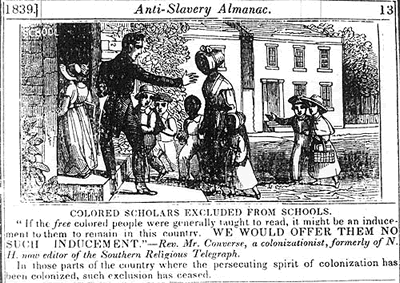Juneteenth Reflections: Making Sense of Freedom's Contradictions
There is a too much space between the recognition of the black founders of America and the recognition of the white founders. We can do something about that.
There are only 14 days between Juneteenth and the Fourth of July, excluding each endpoint. There are 151 years between the recognition of Juneteenth in 2021 and the recognition of July 4 in 1870. That's a lot of time and a shared word—freedom.
I grew up recognizing freedom, mainly in church. In the city of my birth, the first reading of the Emancipation Proclamation was read under what is now called the Emancipation Oak on the campus of Hampton University in January 1863. The Proclamation was signed on January 1. Annual Watchnight church services on December 31 were commemorated as Freedom's Eve, as the Emancipation Proclamation was signed on January 1. It is a holy day. Black folks always stay awake for freedom.
Hampton's proximity to Washington, D.C., the capital of the Union, and Richmond, the Capital of the Confederacy, could explain why the news traveled so fast. But I'm sure that historians would agree that because Fort Monroe, the military base at the southernmost tip of the Confederate Virginia Peninsula, remained a part of the Union, the news of the Proclamation could not be silenced. The Union crippled the Confederacy with the Emancipation. Liberated black founders ran to Union soil. The plantations lost their hands.
It’s easy to consume narratives about enslaved black founders with a self-inflicted illiteracy that kept them enslaved 2 years longer than other black founders. What is more accurate and harder to swallow are the anti-literacy laws that all of the Southern states used to control their enslaved founders. Think about it, the enslaved black Americans in Virginia learned of freedom in January. The enslaved black Americans in Texas learned two years later.
"If the free colored people were taught to read, it would be an inducement for them to stay in the country. We would offer them no such inducement."
At the time of Emancipation, only .9% of the enslaved population could read and write. Indeed, they did not know, but the true shame was the Planter who chose not to enforce the law of the land.
With the U.S. government’s recognition of Juneteenth in 2021, I had mixed feelings. It was like a small secret that more people now know, but without cross-cultural ritual or reverence.
We say 'Happy Juneteenth,' but that doesn't sit well. Happy that slavery is over? Happy that the last of the enslaved are free? Happy that black founders were recognized as people? That feels somewhat empty and unsatisfying.
We can do better than that. Many more of us can read, but we still do not share a common literacy that will help us understand why Juneteenth is important and why we all should care more than just enjoying a day off. We are just starting to hold the horrors of racism, but we quickly shy away from the realities of how these horrors fuel our economy.
In the name of freedom, this is complex.
Maybe we don't know what to say. It is too hard and heavy to say Remember Juneteenth. But that is probably more fitting. Remember that on our soil, the white founders exploited the labor and broke the backs of the black founders so they could live like kings. Remember that on our soil, the white founders designed a system of industrial-level sexual assault to create a constant labor force. Remember, on our soil, the white founders moved the Americans off of their land to grow as much as possible to fuel the growing economy. Remember that the white founders depleted the land of its nutrients, giving it the only option to conquer our neighbors, like Mexico, to expand slavery. Remember that the white founders kept the black founders working for free, extracting their labor, for 2 years after the Emancipation Proclamation. Remember that it was the labor of the black founders that created the wealth the white founders needed to declare independence from England. Remember that this happened here.
We got a day without the ritual or reverence. When I asked a colleague how they were celebrating Juneteenth, they said I am just not going to ask a black person to do anything today. I am not getting in trouble with this one. I laughed. Funny, but that missed the point. A day off without talking about the exploitation of labor misses the point. A day off without remembering the hands that pick our food, sew our clothes, or deliver our food, connected to real people. People with families, dreams, ambitions, and consciousness. People like me and people like you.
The laws of our economy do not incentivize this blood memory. We celebrate profit over principle. Make as much as possible without regard to who made it or how much it costs—costs to the environment, costs to dignity, costs to our collective humanity. Buy low and sell high. Cheap is good, no matter the actual cost. These principles can make the true meaning of Juneteenth easy to overlook.
We like to tell the stories of American independence on July 4. There are Revolutionary War reenactments. We dress up in red, white, and blue for a cookout, have friends over, and celebrate with fireworks. It’s a time of gathering and celebration. We are practiced at this ritual, as many of us were born into it. We acknowledge holidays the way we were taught to recognize them. But Juneteenth is a holiday that clarifies the space between the black and white founders, the contradictions of freedom, property, ownership, labor, and racial capitalism. It’s easier to say Happy Juneteenth or say nothing at all.
Juneteenth is still relatively new for many people, and we have an opportunity to get it right and close the space between these poles of freedom. We can build rituals of reverence that actually honor the day, not just with words, but with practice. We must remember that labor exploitation didn't end with Emancipation. American workers aren't any more valuable than workers in Vietnam, the Philippines, or Cambodia. Incarcerated workers are still human. If we ignore the people suffering so we can have cheap goods, we've missed the point. If we expect cheap, perfect strawberries year-round but forget about the hands in the fields, we've forgotten what matters. Human life is priceless.
In the name of freedom, this is not complicated.
I started growing my food as a city experiment. One day, while making a salad, I realized I only needed two or three leaves. It took weeks for them to get big enough. If I picked them all at once, there'd be nothing for tomorrow. That's discipline, patience, and perspective. Think about how many plants—and how many people—it takes to fill just one store with kale, let alone every store across the country. Behind every harvest is a human story, just like mine.
That’s what Juneteenth asks of us: to remember, to honor, and to practice genuine reverence for the past and for every person whose labor sustains us today.
So instead of saying Happy Juneteenth, I am going to try to remember Juneteenth. At least with a little more reverence, I will never have to see red, black, and green ice cream at Walmart. (YIKES!) Or this monstrosity below.
Remember Juneteenth, friends. Remember.





Remember!